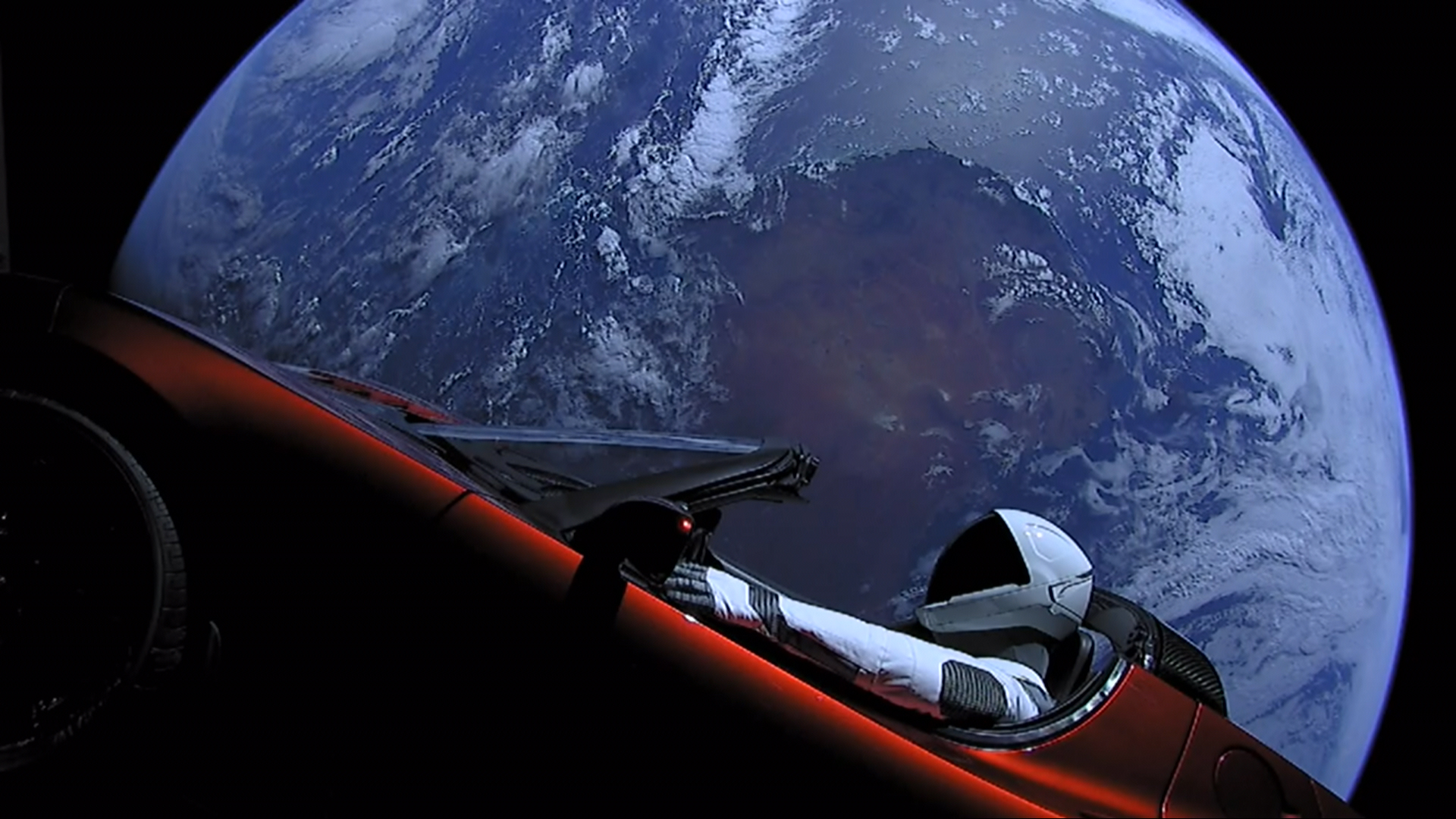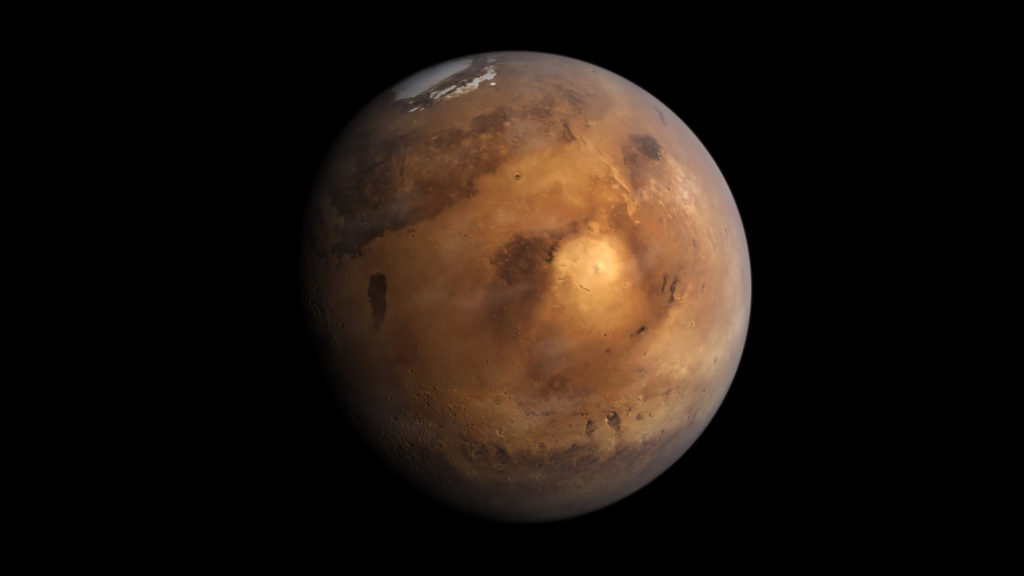What’s Next for SpaceX?
 Source: https://www.flickr.com/photos/spacex/40143096241/in/photolist-24aiRWZ-22W6EBZ-247pN1Q-248Vo1D-EtJeni-21Hnm83-247pLf5-KbF8Sv-23oq9ro-Kjhe5T-22Lrztc-23oq82Q-248NaJ8-22LrL5T-22LnPtK-2341jRo-245ZkyL-245ZkdW-245ZkQN-248UcoP-EB6Fwi-24gcWNP-21Hnkkm-22MbuxK-EtDPxc-233Zfwd-248UgwP-245ZSy1-21Hnte7-KbShMH-Gkwchd-sfshkG-23oqbGW-245YUs3-233G7AY-KbSduV-22LqGHp-EtH72Z-EtJdmF-EtH77t-22LqDS4-248UbgZ-EtYc2i-245YWfw-22LqGqF-9K66RE-22Mbu1H-GkwbYs-EsMiPe-23oqaaN
Source: https://www.flickr.com/photos/spacex/40143096241/in/photolist-24aiRWZ-22W6EBZ-247pN1Q-248Vo1D-EtJeni-21Hnm83-247pLf5-KbF8Sv-23oq9ro-Kjhe5T-22Lrztc-23oq82Q-248NaJ8-22LrL5T-22LnPtK-2341jRo-245ZkyL-245ZkdW-245ZkQN-248UcoP-EB6Fwi-24gcWNP-21Hnkkm-22MbuxK-EtDPxc-233Zfwd-248UgwP-245ZSy1-21Hnte7-KbShMH-Gkwchd-sfshkG-23oqbGW-245YUs3-233G7AY-KbSduV-22LqGHp-EtH72Z-EtJdmF-EtH77t-22LqDS4-248UbgZ-EtYc2i-245YWfw-22LqGqF-9K66RE-22Mbu1H-GkwbYs-EsMiPe-23oqaaN
Business mogul Elon Musk made headlines once more in February 2018 as SpaceX’s Falcon Heavy set out for space. The rocket, the most powerful to be launched into space yet, carries a red Tesla and Musk’s ambitions to explore and colonize Mars. Falcon Heavy’s journey into space is SpaceX’s latest in a string of commercial missions, gradually redefining the way we think about space in terms of exploration and exploitation.
SpaceX, a rocket and spaceship manufacturing company founded in 2002 by Musk, has since its inception aimed to “revolutionize space technology”. The company distinguishes itself from other agencies mandated with space exploration by allying low cost and sustainability in its production model. As such, SpaceX is in the process of designing fully reusable rockets to reduce waste, an endeavour which is coherent with Musk’s other projects, such as Tesla and its line of electric cars.

What makes SpaceX distinct from other companies, other than its relatively ecologically-friendly orientation, is its plans for the future of the human race. Musk has long aspired to make the colonization of space a reality, ultimately transforming Earthlings into a “multi-planetary species”. He feels that Mars is the most viable option for humans to settle, given that its atmosphere, days and overall constitution are the closest to Earth’s in our solar system. In fact, Musk believes the Red Planet could have once been very similar to Earth, echoing the sentiments of a broad section of the scientific community.
The tasks of making Mars habitable and devising the blueprint for space colonization are the next logical steps for SpaceX’s engineers, although it may be years until this actually becomes a reality. Other than determining who will potentially colonize Mars and how, the company faces the pressing need to consider how its objectives may clash with existing international space legislation. International space treaties like the Outer Space Treaty, signed over fifty years ago, define space as a public good, “the province of all mankind”, which in appearance precludes the possibility of space colonization altogether.
These treaties, however, have long been shrouded in controversy. Although all space powers have ratified the Outer Space Treaty, its very nature does not entail that sanctions should be applied if a state were to violate a clause, making it essentially toothless. More importantly, the body of treaties pertaining to the regulation of space was elaborated before the 1980s, at a time when private space exploration simply did not exist. This legal grey zone makes it complicated for states and companies alike to apprehend what the future of humankind in space will look like, or if there is any future to be had there at all.
This disconnect between international law and the undertakings of a new class of entrepreneurs, which Musk represents, is set to widen as more companies likewise turn their sights toward space exploration. Disregarding treaties and allowing the privatization of space to take place, however, would increase inequality between countries at the core and periphery of the international system. Powerful states and companies, which are already ahead in the modern-day space race, would indeed be able to monopolize space territory at the expense of others. Most private companies launching aircraft into space are in effect currently based in the United States or other developed countries, such as the United Kingdom or Japan, given the extensive amount of capital they possess. Dismissing existing treaties could, in this sense, usher in a new era where the privileged would consolidate their existing power and dominance over less fortunate ones.
Some theorists have nevertheless proposed that the exploitation of space could take place under international tutelage, which would foreclose the possibility of wealthy states and entities from being the sole beneficiaries of a spatial zero-sum game. Considering the sheer amount of states and the variety of demands to include in international negotiations, it seems that colonizing Mars, in any case, cannot peacefully be done, at least in the near future.
In addition, SpaceX’s efforts in making space the next locus of human development come at a time when state interest in space has been relegated to the back of the political agenda, making it unlikely that international state cooperation in space will be prioritized. In the United States, where space expenditure is the highest in the world, state-sponsored space exploration has essentially been subject to gradual administrative budget cuts, especially at NASA, where the effects of the cuts will increasingly be felt as the years go by.

Conversely, private companies involved in space, as revealed in the Trump administration’s budget proposal released February 12, will continue to receive rising levels of subsidies in comparison to public agencies. While the funds companies like SpaceX will receive from the American government stand to bolster their capabilities and ambitions further, the question of space sovereignty remains unresolved. Unless international initiative is soon taken, the future of humankind in space thus stands to resemble an uncertain, conflict-ridden dystopia, far from Musk’s dream of life on the Red Planet.
